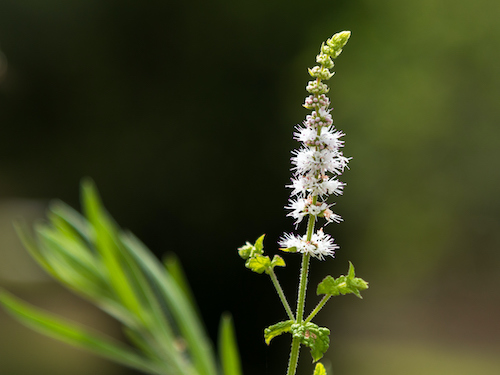Menopause will make me fat.
Menopause will wreck my sex life.
Menopause will make me a “raving maniac.”
Have you been told these common myths about menopause? When we talk with women, we hear so many negative misconceptions it’s not surprising that women are upset and reluctant to head into this time in their life. Unfortunately, we also hear first-hand how women’s choices are often influenced by these myths, which tend to simplify both symptoms and solutions.

The truth is that if you understand menopause and the hormonal changes that are taking place in your body, you can overcome distressing symptoms to feel and look your best. Here’s the truth about the 10 most common menopause myths:
Myth #1: Menopause begins at 50
The average age for menopause is 52, but you may start anywhere from your late 30s to your early 60s. You’ll officially be in menopause when you haven’t had a period for a full 12 months. This means that even if you go 10-11 months without your period, and then get it, you are still not in menopause and need to start the count over again.
Women often don’t realize they can experience symptoms long before official menopause. They’re unpleasantly surprised by fatigue, hot flashes, irritability, and weight gain — even when they still have their period.
If this is happening to you, you may be in perimenopause — the transition leading up to menopause. When women ask “how long does menopause last,” they often are referring to perimenopause. Perimenopause can last a few months or up to 15 years before menopause and you will continue to menstruate. You may experience more symptoms, maybe even more than you do in menopause. This is because perimenopause is the time when your sex hormones — estrogen, progesterone, and testosterone — naturally start to fluctuate more, and it’s these changes to your hormones that can lead to troubling symptoms.

Myth #2: Weight gain is inevitable in menopause
Unwanted weight gain is common in menopause — but not inevitable. As you enter perimenopause and menopause, estrogen levels drop naturally and may create a hormonal imbalance. Your body reacts by trying to protect itself by actually storing fat — especially around the waist, hips and thighs. Since fat tissue also acts as a source of estrogen, your body holds on to it even more as your estrogen levels continue to fluctuate.
With these changes taking place in your body, you’ll find a healthy weight by shifting your diet and establishing exercise habits. One of the most important things you can do is — eat! We’ve seen again and again how good nutrition helps women balance their hormones and find a way to overcome menopause weight.
Myth #3: Menopause gives you weak bones
Menopause and excessive bone loss do not have to go hand in hand. According to Women’s Health Network bone expert Susan E. Brown, PhD “On average, a woman loses 10% of her bone mass during the menopause transition — an entirely normal part of the bone breakdown and build up process. After we reach our peak bone mass at age 30, we naturally experience more breaking down than building up. While most women have enough bone mass to handle this loss just fine, added risk factors like poor diet, family history and lifestyle can lead to excessive bone loss of up to 20%.”
Dr. Brown also points out there are plenty of factors you can control to prevent excessive bone loss in perimenopause and menopause, including getting enough of the proper nutrients, managing extreme hormonal fluctuations, developing a bone-strengthening exercise program and reducing stress.
Myth #4: Menopause wrecks your sex life
Women can have a great sex life at any age, from their 20s to their 90s! This is a huge relief to the women who have been told — even by their doctors — that decreases in sex drive and enjoyment are a “normal” part of growing older. As women, that doesn’t sound normal to us!
But decreased sex drive is one of the signs of hormonal imbalance. Other physical and emotional symptoms that factor into libido are vaginal dryness, irritability and fatigue. For example, approximately 50% of women in menopause will experience vaginal dryness which can make sex uncomfortable. And if sex hurts, you will probably see a drop in your libido too.
It is possible to address physical symptoms with herbs such as passionflower, chasteberry and ashwaghanda. When it comes to menopause and sex, herbs and other tips can make a difference in boosting your libido.
Myth #5: The first sign of menopause is hot flashes
Despite the fact that menopause and hot flashes are almost synonymous in our society, your first sign of menopause could be any of the following:
- Fatigue
- Weight gain
- Low libido
- Hair loss
- Food cravings
- Fuzzy thinking/forgetfulness
- Irritability, mood swings, depression and/or anxiety
- Irregular periods
- Adult acne
- Sleep difficulties
- Vaginal dryness
- Joint discomfort/stiffness
- Digestive discomfort
- Feeling overwhelmed
- PMS-like symptoms, including stronger cramps, bloating, breast tenderness or headaches
It’s also important to remember that there’s no set pattern for symptoms. You may experience one or many, and each symptom can range dramatically in severity and frequency. Plus, with such a wide variety of symptoms, it’s no wonder that women may not immediately connect them to menopausal hormonal imbalance. This is especially true when symptoms overlap with adrenal or thyroid imbalances. If you’re not sure whether hormonal, thyroid or adrenal imbalance is causing your symptoms, take our quick 15-question Hormonal imbalance quiz right now.
Myth #6: After menopause, your body doesn’t produce hormones
No matter how far beyond menopause you may be, you still have hormones! Your sex hormones — estrogen, testosterone, and progesterone —decline once your reproductive years end because they’re needed less. But you still need them and make them, just in lower amounts.
Myth #7: The older you are when you get your period, the older you’ll be when you start menopause
In reality, the exact opposite is true. If you started menstruating later than average, you may begin menopause earlier. While predicting the age you’ll begin menopause is tricky, there are clues to help you predict when you’ll start:
- When your mother started menopause is the best indicator of when you’ll start too.
- Smoking may mean earlier menopause.
- Drinking alcohol may mean later menopause.
- More pregnancies suggest later menopause.
At some point, all women will go through menopause and there isn’t anything you can, or should, do to delay it.

Myth #8: Menopause only causes physical symptoms
Menopause symptoms can be related to thinking and emotions. Sudden shifts in our hormones can lead to changes in mood, memory and concentration. Estrogen and progesterone are key hormones that have an impact on our neurotransmitters. For example, estrogen acts by inhibiting the breakdown of serotonin making higher levels available in the brain and keeping us happy. It also increases acetylcholine which is our neurotransmitter related to memory. Progesterone has an effect on Gaba like receptors in the brain which is our inhibitory neurotransmitter and helps us to relax and not be so anxious.
Overall, menopause can be a time of great stress, also influencing your emotions. In fact, perimenopause and menopause are sometimes referred to as the “flip side of puberty” with similar emotional ups and downs. Luckily, we don’t have to be teenagers again!
Myth #9: There’s no difference between natural menopause and surgical menopause
Natural menopause and surgical menopause are very different. Natural menopause is a gradual shift of the sex hormones, but with surgical menopause following a total hysterectomy you’ll experience an immediate and significant change in hormonal balance. Removing your uterus and cervix, along with your ovaries and fallopian tubes, drastically affects the production of hormones.
With a partial hysterectomy — when only the uterus is removed — changes become less predictable. Some women immediately suffer severe menopausal symptoms while others won’t experience many. The truth is that every woman experiences menopause differently.

Myth #10: The only way to get through menopause is to take hormones
You always have choices when it comes to your body and your health in menopause. Considering your options is especially important with hormone replacement therapy (HRT) because of possible risks. If you are talking to your doctor about menopause, we recommend you prepare for your visit and write down questions you may have.
Our experience shows the most thorough and lasting way to manage any symptoms of hormonal imbalance is to listen to your body and adjust your lifestyle, diet and supplemental nutrition to support your body. One of the most effective ways is to use herbal solutions that share important features with our own hormones. These powerful herbs — known as phytocrines — can provide relief for specific menopausal symptoms, as well as support your body’s own ability to make and use hormones.
The use of herbs (phytotherapy) is especially effective when the herbs are adaptogenic and have the power to adjust to the specific needs of your body. At Women’s Health Network, we formulated Herbal Equilibrium, our exclusive multibotanical combination including adaptogenic herbs, to target the top 10 symptoms of menopause.
We encourage you to explore your options, and consider investigating whether a natural approach will work best for you. Many women find that working with their body is much more effective for symptom relief than more invasive choices. And feeling your best is important when you remember one of the important truths of menopause in many different cultures – that it can be a wonderful time to explore your passions and pleasures that you may have set aside earlier in your life!










